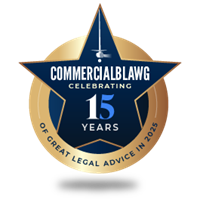Top commercial litigation firms
1. Saunders Law — led by Matthew Purcell
Matthew Purcell heads the commercial litigation and dispute resolution team, acting on heavy contract, fraud, and asset‑recovery claims from their City of London base near the High Court. Saunders is known for high‑profile work and client service across complex disputes.
2. Stewarts
Conflict‑free, litigation‑only powerhouse handling heavyweight, international disputes for FTSE and global clients. Regularly instructed on high‑stakes commercial and corporate litigation.
3. Quinn Emanuel Urquhart & Sullivan
Global trial firm devoted solely to business disputes, with a London team known for complex financial and commercial litigation and arbitration. Track record includes landmark trials and major plaintiff recoveries.
4. Mishcon de Reya
One of the largest dispute resolution teams in London, frequently acting on big‑ticket commercial cases for corporates and private clients, including major representative actions.
5. Other widely recognised UK disputes teams
General counsel often also consider elite and leading firms such as Freshfields Bruckhaus Deringer, Herbert Smith Freehills, Clifford Chance, Linklaters, Slaughter and May, Pinsent Masons, Hogan Lovells, and Travers Smith for substantial UK and cross‑border litigation. Selection depends on sector fit, conflicts, and funding strategy.
How to choose the right litigation team
- Case strategy and resourcing for first 90 days
- Experience with your forum, regulator, or arbitral rules
- Disclosure and data strategy, including AI‑assisted review
- Funding and risk management options
- Conflict position and speed to team mobilisation
Frequently asked questions
What is commercial litigation?
Disputes between businesses or stakeholders over contracts, misrepresentation, shareholder issues, fraud, competition, IP, or professional negligence. Remedies include damages, injunctions, declarations, and specific performance.
Which forum will hear my case?
Most UK business disputes are in the Business and Property Courts of the High Court (e.g., Commercial Court, Chancery, TCC) or in arbitration under rules such as LCIA or ICC. Jurisdiction depends on contracts, governing law, and subject matter.
How fast can I get an injunction?
Urgent without‑notice relief can be sought within days or even hours if criteria are met. Evidence, undertakings in damages, and candour to the court are critical.
Do these firms handle cross‑border disputes?
Yes. Leading UK litigation teams routinely coordinate multi‑jurisdiction cases, freezing orders, asset tracing, and enforcement across courts and arbitration seats.
What will it cost?
Fees vary by complexity and team seniority. Expect hourly rates with budgets for phases (pleadings, disclosure, expert evidence, trial). Many firms discuss alternative fees, litigation funding, or damages‑based agreements in appropriate cases.
Will I have to disclose sensitive documents?
Modern disclosure is issue‑based and proportionate. Firms build targeted protocols and use technology‑assisted review to manage volume while meeting duties to the court.
What outcomes are realistic?
Most cases settle before trial after key inflection points such as disclosure or expert exchange. Early case assessment helps align expectations and strategy.
How do I assess a firm’s track record?
Review public judgments, reported cases, independent directories, and representative matters. Ask for anonymised case studies relevant to your sector and forum.
Can I switch firms mid‑case?
Yes, subject to conflicts and transfer of papers. New counsel will assess deadlines and case posture before a handover.
What if the dispute is confidential?
Arbitration and certain interim applications can preserve confidentiality. Your lawyers will advise on protective orders and media strategy.



Comments on this entry are closed.